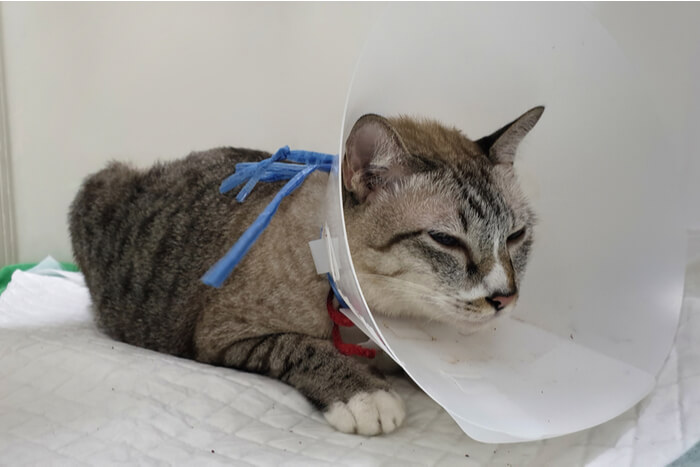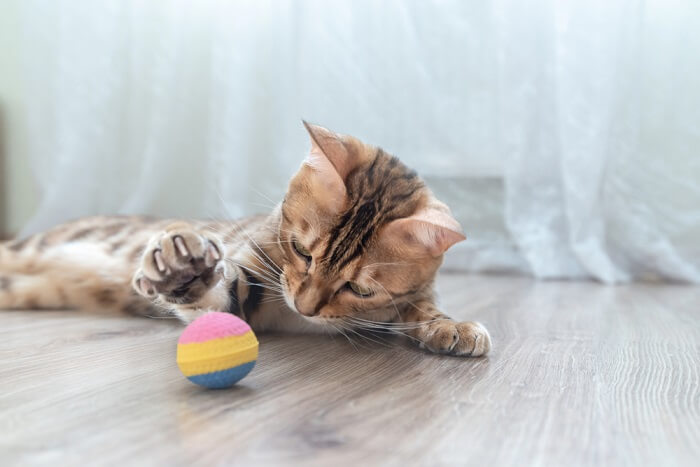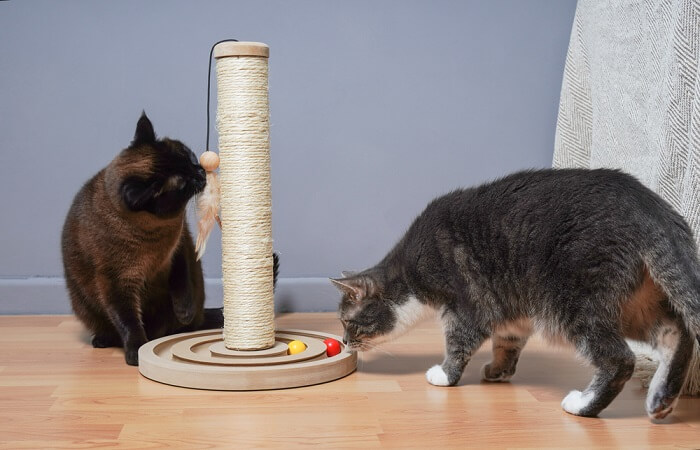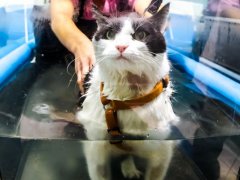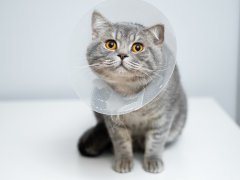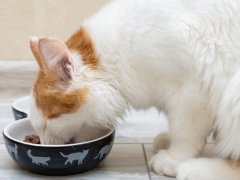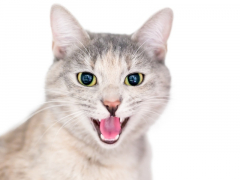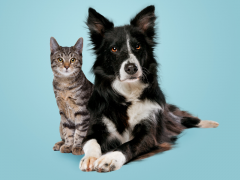Even though cats are considered to be very low-maintenance animals, adopting one is still something that should not be taken lightly, and bringing one into your home should never be a spur-of-the-moment decision.
Cats require some specific supplies, a nutritious diet and a pleasant home in order for them to live long, happy lives. And, this is especially true when it comes to adopting HIV-positive cats.
Feline immunodeficiency virus, also known as FIV (and also referred to as feline HIV or cat AIDS), is a virus that weakens a cat’s immune system and can lead to cats becoming more vulnerable to additional infections.
FIV is most often transmitted through deep bite wounds that come from infected cats, or from infected felines passing on the virus to their kittens, as well as from mating.
Approximately 2.5-5% of cats in North America are infected with FIV, but they usually don’t show any signs of illness, and it can often take several years for them to display any symptoms after contracting the virus.
However, even though there is no cure for FIV, FIV-positive cats can live the same happy and healthy lives as unaffected cats, and multiple studies have shown that FIV cats can often have the same lifespan as cats that don’t have the FIV virus.
So, in this article, we will give you some important information about what to expect when adopting a FIV-positive cat, as well as giving you some useful tips about how to provide your FIV-positive cat with what it needs to live a happy and healthy life.
At a Glance: Things To Consider When Adopting a FIV-Positive Cat
- Quality of Life – Even though FIV can make cats more prone to secondary infections and other potential health issues, FIV-positive cats can usually live very happy, long and fulfilling lives without the need for constant medical care or supervision.
- Monitor Their Health – There is no vaccination or cure for FIV, so it’s very important that you pay attention to your FIV-positive cat’s general health, and be prepared to take your FIV cat to a veterinarian immediately if you see any signs of unusual behavior or illness.
- Healthy Diet – All cats require a healthy and balanced diet, and this especially true when it comes to FIV cats. So, be sure to provide your FIV-positive cat with high-quality food that is full of essential nutrients to help keep their immune system strong.
- Keep FIV Cats Indoors – Because of their weakened immune systems, FIV cats can contract additional infections more easily than unaffected cats, so it’s vital that FIV cats stay indoors at all times to avoid any potential dangers.
- Prevent Breeding – Getting a cat spayed or neutered is especially important when it comes to FIV-positive cats. FIV is often transferred through mating and nursing, so having your FIV-positive cats fixed can help prevent any additional spread of infection.
- Provide a Healthy Home – FIV is not very easily spread through shared food and water bowls, or through litter boxes among cats. Still, providing your FIV cat with a clean and stable household that is free from potential dangers will help to prolong their lifespan.
Things To Keep In Mind When Adopting a FIV-Positive Cat
Even though FIV cats don’t usually require a lot of extra attention, it’s still very important to pay close attention to their general well-being and behavior.
In this article, we’ll expand on some of these important things to consider when adopting a FIV-positive cat. And, remember, all cats have their own unique personalities, so you may have to do some experimenting to discover what works best for your cats, and what works best for you.
Still, FIV cats can enhance almost anyone’s life, and you can definitely enhance the lives of the FIV-positive cats that you adopt.
FIV Cats Can Live Long, Happy Lives
Although there is no cure for FIV, FIV-positive cats can still live very happy and fulfilling lives for several years without showing any signs of illness, and without requiring any special attention or constant medications.
So, even though FIV-positive cats have weakened immune systems and are more vulnerable to additional infections, they can enjoy the same quality of life as unaffected cats, and live for several, happy years without the need for constant supervision.
Pay Attention to Your FIV Cat’s Health
Even though FIV cats don’t usually require a lot of extra attention, it’s still very important to pay close attention to their general well-being and behavior, and watch for any for signs of illness.
Since FIV-positive cats are more prone to secondary infections due to their weakened immune systems, it’s important that you are prepared to immediately take your FIV cat to a veterinarian if you notice any signs of illness. Also, it’s a good idea for your FIV cat to get a regular veterinary check-up every six months.
FIV Cats Need a Healthy Diet
FIV-positive cats, just like all cats, need a healthy and balanced diet that is full of essential nutrients to help keep their immune systems strong, and to help prevent any additional health issues in the long run.
So, whether you’re feeding your FIV cat wet or dry food, it’s extremely important to give them high-quality food that is free of uncooked ingredients such as raw eggs, raw meat or unpasteurized dairy. Doing so will help to avoid the risk of bacterial and parasitic infections.
FIV Cats Should Stay Indoors
Since FIV-positive cats are more prone to getting additional infections than unaffected cats, they should always be kept indoors to help lower the risk of them contracting additional diseases and infections.
Although it can be very tempting to let your FIV cat outside so that it can explore and get some fresh air once in a while, doing this can potentially expose your FIV-positive cat to potential dangers, which may lead to additional health issues.
Prevent Your FIV Cat From Breeding
It’s a good idea for cats to be spayed or neutered to begin with, but this is particularly important when it comes to FIV-positive cats. FIV is often transferred through mating and nursing, so it’s vital that your FIV cat is fixed to help prevent any additional spreading of the virus.
So, make sure that your FIV-positive cat is spayed or neutered prior to adoption, or have it spayed or neutered immediately after adopting to help alleviate the risk of other cats in your home from contracting FIV.
Provide a Healthy Home Environment
FIV is not very easily spread through shared food bowls, water bowls or litter boxes, but there is still a possibility of FIV-positive cats passing on the virus to unaffected cats that already live in your home.
However, even though there is no vaccination for FIV, it is very easy to prevent your uninfected cats from getting infected if you provide all of your cats with a harmonious household that is free of stressors that may cause cats to become aggressive and potentially bite each other.
Final Thoughts
FIV cats can live very happy, healthy and long lives, and don’t need very much extra attention in order to do so. However, there are a few important things that adopters should definitely prepare for prior to adopting in order to ensure that they remain healthy, and to increase their longevity and quality of life.
With the right food, home environment and medical care, FIV-positive cats can enjoy very fulfilling lives, just like all cats.
